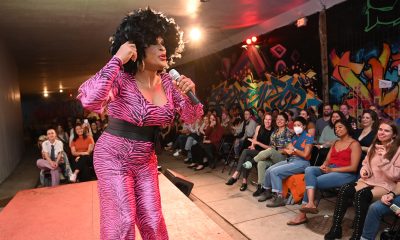Arts & Entertainment
Sampson returns for Oct. 11 event at African-American History Museum
Native Washingtonian on life in Calif., the Cosby scandal, his upcoming Speak Easy and more
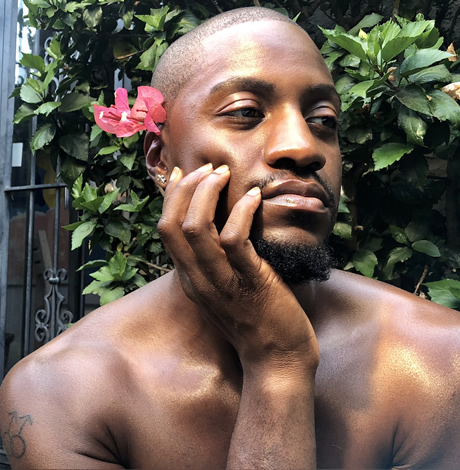
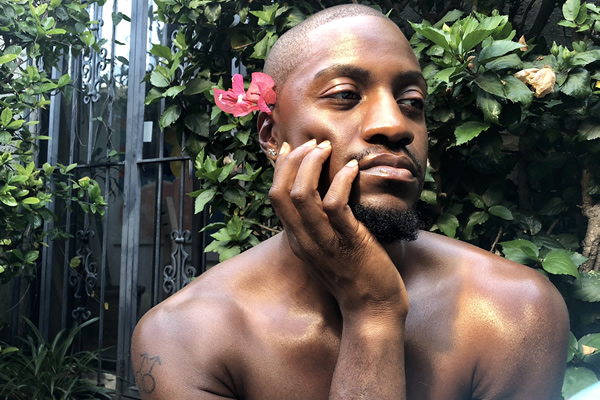
Sampson McCormick</strong. says D.C. will always be home. (Photo courtesy of McCormick)
Native Washingtonian Sampson McCormick is bummed the National Museum of African-American History & Culture wasn’t open before he left town to move to Los Angeles six years ago. He’s visited it several times since it opened two years ago.
“What I really love about it is they don’t just pick parts of it to include but we’re there in all our capacities, the 33-year-old, self-described old soul says. “Other museums may mention Bayard Rustin but they won’t mention that these were queer people of color. This museum really spells it out and I really like that.”
Sampson, an established stand-up comedian, will headline an old-fashioned Harlem Renaissance Speak Easy event on Thursday, Oct. 11 at 7 p.m. at the museum. It will also feature Charlene A. Carruthers, a black, queer feminist community organizer who will discuss her book, “Unapologetic” and spoken word artist 2Deep. It’s free but tickets are required. Sampson spoke to the Blade by phone last week.
WASHINGTON BLADE: How is California treating you?
SAMPSON: I like it. California is a place where people come to be free and there isn’t as much judgement here as there is back east. They’ll say, “I don’t like you,” back there but here it’s a little more passive-aggressive. But it’s cool. I’m making it work.
BLADE: Tell us about the event.
SAMPSON: It’s a Harlem renaissance-themed evening to celebrate queer black artists. It’s basically gonna reflect on those who came before and show where we are now. I’m the first queer comedian to headline there.
BLADE: How did they know about you?
SAMPSON: How could they not? I’ve been performing for 20 years and have created a body of work that speaks for itself. I use my platform to contribute as much as I can to our growth as a community. I have a really great reputation that I’m proud of.
BLADE: Do you make it back to D.C. very often?
SAMPSON: I love D.C. I hadn’t been for about a year. I was having a little bit of family drama … but I get back as often as I can. D.C. is home.
BLADE: What prompted you to move? Career?
SAMPSON: I was crazy, I moved out here for love. We met in D.C., were absolute love birds and after we’d been together a little over a year, we moved to the Bay Area. It was a big jump. We broke up last year.
BLADE: Are you seeing anybody now?
SAMPSON: You would think as gorgeous and sexy as I am, you would think I am, but dating is hard, especially with the apps now. But nobody serious right now, which is sad.
BLADE: As a comedian, did the Cosby conviction hit you any harder?
SAMPSON: It was hard seeing him shuffle down that hallway in those handcuffs. That was hard because that’s a part of your childhood. He was America’s dad. We were all disappointed, black or white. We all looked at him and held him up as a favorite family member. But somebody who rapes people, it’s wrong and they should have to suffer the consequences.
BLADE: How are black gay guys different in California than D.C.?
SAMPSON: Oh Lord, you want me to be honest? They don’t date other black men in San Francisco or Los Angeles. If you see a black gay couple here, you better be taking some pictures because you won’t see it again for a long time.
BLADE: Why is that?
SAMPSON: I don’t have anything against interracial dating. Love is love, but I do believe there are some internal conflicts among black gay men out here. On the East Coast, it’s more celebrated but not as much on the West Coast. Atlanta, D.C., Chicago — those are black cities. The landscape is just a lot different in L.A. and San Francisco. And if you’re a darker-skinned black man, a lot of times people are only interested in you as a sexual fetish.
BLADE: What’s the last thing you saw that cracked you up?
SAMPSON: I love “Insecure” on HBO. I would love to be on that show. And “Pose” is another show that’s really funny.
Theater
Round House explores serious issues related to privilege
‘A Jumping-Off Point’ is absorbing, timely, and funny
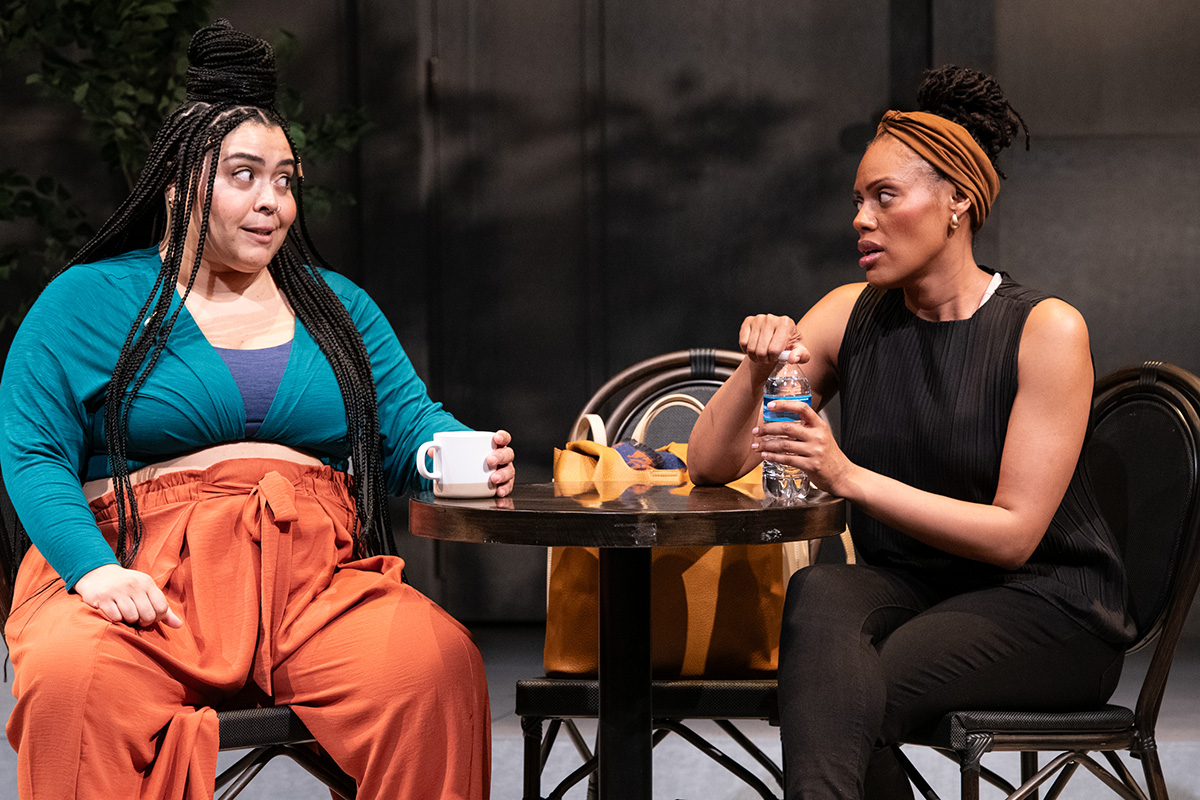
‘A Jumping-Off Point’
Through May 5
Round House Theatre
4545 East-West Highway, Bethesda, Md.
$46-$83
Roundhousetheatre.org
In Inda Craig-Galván’s new play “A Jumping-Off Point,” protagonist Leslie Wallace, a rising Black dramatist, believes strongly in writing about what you know. Clearly, Craig-Galván, a real-life successful Black playwright and television writer, adheres to the same maxim. Whether further details from the play are drawn from her life, is up for speculation.
Absorbing, timely, and often funny, the current Round House Theatre offering explores some serious issues surrounding privilege and who gets to write about what. Nimbly staged and acted by a pitch perfect cast, the play moves swiftly across what feels like familiar territory without being the least bit predictable.
After a tense wait, Leslie (Nikkole Salter) learns she’s been hired to be showrunner and head writer for a new HBO MAX prestige series. What ought to be a heady time for the ambitious young woman quickly goes sour when a white man bearing accusations shows up at her door.
The uninvited visitor is Andrew (Danny Gavigan), a fellow student from Leslie’s graduate playwriting program. The pair were never friends. In fact, he pressed all of her buttons without even trying. She views him as a lazy, advantaged guy destined to fail up, and finds his choosing to dramatize the African American Mississippi Delta experience especially annoying.
Since grad school, Leslie has had a play successfully produced in New York and now she’s on the cusp of making it big in Los Angeles while Andrew is bagging groceries at Ralph’s. (In fact, we’ll discover that he’s a held a series of wide-ranging temporary jobs, picking up a lot of information from each, a habit that will serve him later on, but I digress.)
Their conversation is awkward as Andrew’s demeanor shifts back and forth from stiltedly polite to borderline threatening. Eventually, he makes his point: Andrew claims that Leslie’s current success is entirely built on her having plagiarized his script.
This increasingly uncomfortable set-to is interrupted by Leslie’s wisecracking best friend and roommate Miriam who has a knack for making things worse before making them better. Deliciously played by Cristina Pitter (whose program bio describes them as “a queer multi-spirit Afro-indigenous artist, abolitionist, and alchemist”), Miriam is the perfect third character in Craig-Galván’s deftly balanced three-hander.
Cast members’ performances are layered. Salter’s Leslie is all charm, practicality, and controlled ambition, and Gavigan’s Andrew is an organic amalgam of vulnerable, goofy, and menacing. He’s terrific.
The 90-minute dramedy isn’t without some improbable narrative turns, but fortunately they lead to some interesting places where provoking questions are representation, entitlement, what constitutes plagiarism, etc. It’s all discussion-worthy topics, here pleasingly tempered with humor.
New York-based director Jade King Carroll skillfully helms the production. Scenes transition smoothly in large part due to a top-notch design team. Scenic designer Meghan Raham’s revolving set seamlessly goes from Leslie’s attractive apartment to smart cafes to an HBO writers’ room with the requisite long table and essential white board. Adding to the graceful storytelling are sound and lighting design by Michael Keck and Amith Chandrashaker, respectively.
The passage of time and circumstances are perceptively reflected in costume designer Moyenda Kulemeka’s sartorial choices: heels rise higher, baseball caps are doffed and jackets donned.
“A Jumping-Off Point” is the centerpiece of the third National Capital New Play Festival, an annual event celebrating new work by some of the country’s leading playwrights and newer voices.
Nightlife
Ed Bailey brings Secret Garden to Project GLOW festival
An LGBTQ-inclusive dance space at RFK this weekend
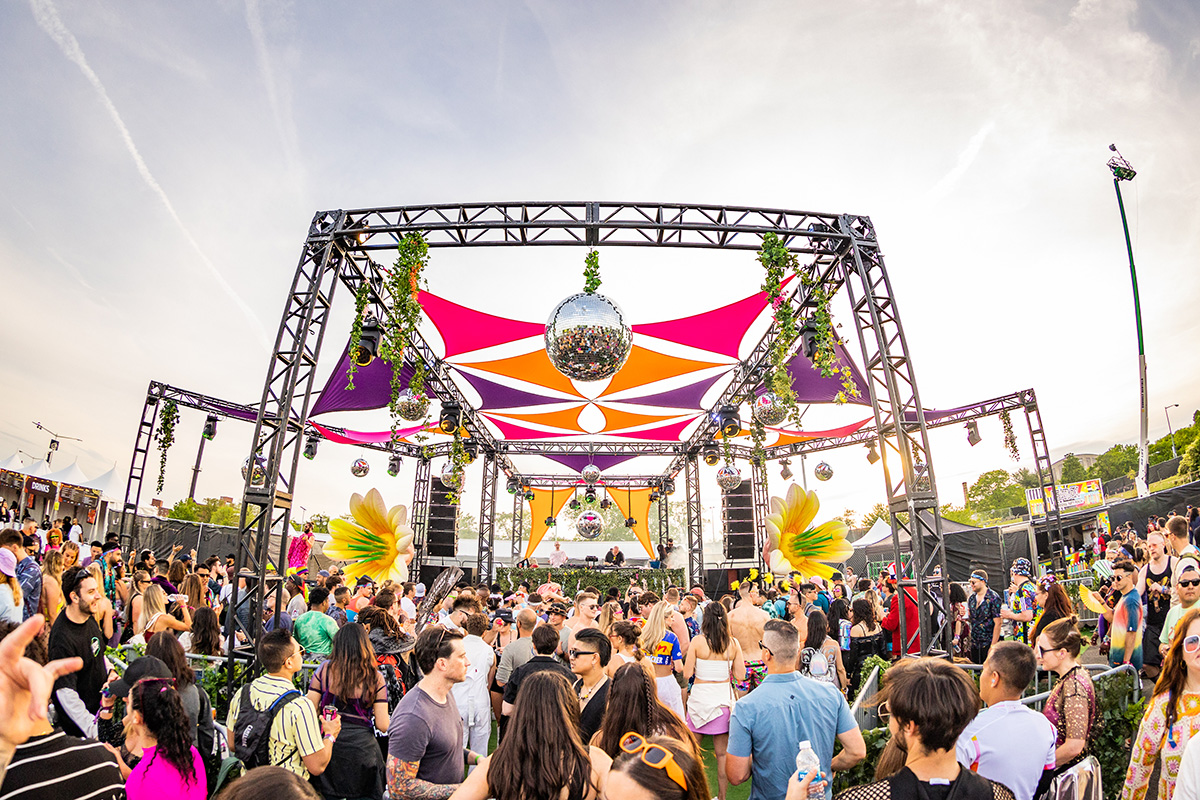
When does a garden GLOW? When it’s run by famed local gay DJ Ed Bailey.
This weekend, music festival Project GLOW at RFK Festival Grounds will feature Bailey’s brainchild the Secret Garden, a unique space just for the LGBTQ community that he launched in 2023.
While Project GLOW, running April 27-28, is a stage for massive electronic DJ sets in a large outdoor space, Secret Garden is more intimate, though no less adrenaline-forward. He’s bringing the nightclub to the festival. The garden is a dance area that complements the larger stages, but also stands on its own as a draw for festival-goers. Its focus is on DJs that have a presence and following in the LGBTQ audience world.
“The Secret Garden is a showcase for what LGBTQ nightlife, and nightclubs in general, are all about,” he says. “True club DJs playing club music for people that want to dance in a fun environment that is high energy and low stress. It’s the cool party inside the bigger party.”
Project GLOW launched in 2022. Bailey connected with the operators after the first event, and they discussed Bailey curating his own space for 2023. “They were very clear that they wanted me to lean into the vibrant LGBTQ nightlife of D.C. and allow that community to be very visibly a part of this area.”
Last year, club icon Kevin Aviance headlined the Secret Garden. The GLOW festival organizers loved the its energy from last year, and so asked Bailey to bring it back again, with an entire year to plan.
This year, Bailey says, he is “bringing in more D.C. nightlife legends.” Among those are DJ Sedrick, “a DJ and entertainer legend. He was a pivotal part of Tracks nightclub and is such a dynamic force of entertainment,” says Bailey. “I am excited for a whole new audience to be able to experience his very special brand of DJing!”
Also, this year brings in Illustrious Blacks, a worldwide DJ duo with roots in D.C.; and “house music legends” DJs Derrick Carter and DJ Spen.
Bailey is focusing on D.C.’s local talent, with a lineup including Diyanna Monet, Strikestone!, Dvonne, Baronhawk Poitier, THABLACKGOD, Get Face, Franxx, Baby Weight, and Flower Factory DJs KS, Joann Fabrixx, and PWRPUFF.
Secret Garden also brings in performers who meld music with dance, theater, and audience interactions for a multi-sensory experience.
Bailey is an owner of Trade and Number Nine, and was previously an owner of Town Danceboutique. Over the last 35 years, Bailey owned and operated more than 10 bars and clubs in D.C. He has an impressive resume, too. Since starting in 1987, he’s DJ’d across the world for parties and nightclubs large and intimate. He says that he opened “in concert for Kylie Minogue, DJed with Junior Vasquez, played giant 10,000-person events, and small underground parties.” He’s also held residencies at clubs in Atlanta, Miami, and here in D.C. at Tracks, Nation, and Town.
With Secret Garden, Bailey and GLOW aim to bring queer performers into the space not just for LGBTQ audiences, but for the entire music community to meet, learn about, and enjoy. While they might enjoy fandom among queer nightlife, this Garden is a platform for them to meet the entirety of GLOW festival goers.
Weekend-long Project GLOW brings in headliners and artists from EDM and electronic music, with big names like ILLENIUM, Zedd, and Rezz. In all, more than 50 artists will take the three stages at the third edition of Project GLOW, presented by Insomniac (Electric Daisy Carnival) and Club Glow (Echostage, Soundcheck).
Out & About
Washington Improv Theatre hosts ‘The Queeries’
Event to celebrate queer DMV talent and pop culture camp

The Washington Improv Theatre, along with the Mayor’s Office of LGBTQ Affairs and the Gay Men’s Chorus of Washington DC, will team up to host “The Queeries!” on Friday, April 26 at 9:30 p.m. at Studio Theatre.
The event will celebrate Queer DMV talent and pop culture camp. With a mixture of audience-submitted nominations and blatantly undemocratically declared winners, “The Queeries!” mimics LGBTQ life itself: unfair, but far more fun than the alternative.
The event will be co-hosted by Birdie and Butchie, who have invited some of their favorite bent winos, D.C. “D-listers,” former Senate staffers, and other stars to sashay down the lavender carpet for the selfie-strewn party of the year.
Tickets are just $15 and can be purchased on WITV’s website.
-

 State Department3 days ago
State Department3 days agoState Department releases annual human rights report
-

 South America1 day ago
South America1 day agoArgentina government dismisses transgender public sector employees
-

 Maryland5 days ago
Maryland5 days agoJoe Vogel campaign holds ‘Big Gay Canvass Kickoff’
-

 District of Columbia1 day ago
District of Columbia1 day agoCatching up with the asexuals and aromantics of D.C.

